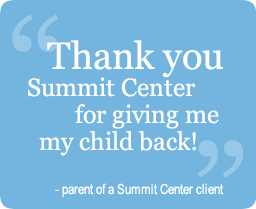By Dr. Dan Peters
Earlier this week, I was on two full airline flights and now conferences are cancelled, the NBA is suspended, March Madness is not happening, colleges have cancelled winter and spring terms, many K-12 schools are closed, Italy is on lock down, and there are international travel restrictions with domestic travel restrictions being considered. We have been through HIV, Ebola, SARS, H1N1, and bad flu seasons. We wanted to think this was just another one of those bad, scary, and temporary viruses, but now we know, it is not. COVID-19 (Coronavirus) is different and it’s not going away as soon as we want it to.
Just like in past crises, many of our kids are worried and scared – and so are many of us parents. Our kids always look to us to understand how bad or scary something is. They look to how we are reacting – our facial expressions, our words, our emotions, and our behavior. Especially when our kids are young, but also when they are teens, we are the guideposts and beacons of what right and wrong, good and bad, and safety and fear. Sounds like a lot of responsibility, right? It is.
When people ask me, “How can I help my child with her worries or fears?” the answer is always the same: Start by making sure you are managing your own worries and fears.
Before we figure out what we are going to “tell” our children, we need to get grounded and become aware of how we are feeling and how we are acting. Are we scared, worried, or in disbelief? Are we acting differently than we usually do? Are we more tense, reactive, and emotional than usual? Are we more quiet, reserved, and distant? Our kids are always watching and listening to us – how we act and what we say matters, a lot.
Most of us have come to the conclusion that parenting is not easy. At times it is difficult to deal with our own lives, yet also having to be responsible for the well-being of our children. Life can be hard, uncertain, and unpredictable on a regular day, and now we are dealing with something none of us have before. Here’s the deal. We have a job to do – to be resilient in the face of adversity and teach resilience to our children. Resilient people see challenges as opportunities, deal with life as it comes, problem-solve, adapt, and persevere. We are the leaders of our families and we need to lead to by example.
The Dalai Lama says something like this:
If you are worried and you can do something about it, do something about it, and stop worrying. If you are worried and there is nothing you can do about it, stop worrying, there is nothing you can do about it.
Of course, this is much easier to say than do, particularly in a situation like the Coronavirus, but we need to heed these words and ask ourselves the question, “What can we control and what is out of our control?
What we can control:
- Washing our hands often
- Avoid touching our faces
- Using Kleenex to blow our noses rather than our sleeves
- Cover our nose and mouth when we sneeze
- Clean touched surfaces and objects
- Avoid places with large crowds
- Stay home more
- Use technology for ordering food and supplies, and for social connection (the opposite of what we usually tell our teens)
What we cannot control:
- How many people currently have the virus
- How long the spread will last
- If it is seasonal or not
- What will happen in the future?
The key to being resilient is remaining calm so we can problem-solve – understanding the difference between what we can do and what we cannot. It is normal for us to experience worry and fear, particularly in situations such as these. However, we need to prioritize and manage our own mental and physical health and well-being so we can provide guidance and security to our children in these uncertain times.
Here are steps for building our resilience and inner strength:
- Self-awareness – check in with yourself and take your emotional temperature. Ask yourself how you are feeling. Are you doing okay or are you struggling? Ask yourself what your kids are seeing from you. Are you okay with it or do you think you should try to manage your emotions and behavior more? Can you manage it on your own or do you need to seek support?
- Gather information – Seek to understand the situation so you have factual and rational information. Manage the amount of information you are consuming. You need to stay apprised of current information, but you also need to get away from the constant news stream which is usually designed to hype us up rather than calm us down.
- Assess what is in your control – As mentioned above, ask yourself what you can do about the situation and take action steps. Make a plan on a post it or on your phone or computer. It helps when we see that we have a plan. Do your best to let go of what is out of your control.
- Acceptance – It is critical that we accept, rather than, resist what is happening. When we resist reality, we tend to be angry, depressed, and anxious. We need to come to terms with this current “new normal” for the time being and embrace it to the degree that we can.
- Problem-solve – We problem-solve issues related to our kids and life every day. Use those same skills to figure out how you are going to handle day to day life with these new circumstances. What will you do differently? What will you keep the same? What will you do with your kids? What creative activities can you do at home? What new opportunities exist with less school and activity obligations?
- Self-care – Take care of your mental, emotional, and physical health. Continue to do your daily self-care ritual to the degree possible. Exercise, diet, and sleep remain critical. Try to find some time for yourself daily (though clearly harder with kids at home). If you go to counseling, continue to do so (even virtually). If you feel counseling could help you, make an appointment to get some support. Read, journal, meditate, run, hike, do yoga (even if it needs to be at home).
- Stay connected – Although we often talk about our over-reliance on technology, it will surely come in handy during this time as we use our phones and computers for texting, email, social media, and video chats to stay connected to our family and friends. Knowing we are part of a larger community is a key component to being resilient.
- Stay present – We must remember that all worry and fear exist in the future and generally start with “what if…” thinking. Sure, there are plenty of what-ifs with this virus that can keep us worried and afraid all day, however, we must stay focused on the present moment – how we are and what we know right now. That is all that exists, the present moment. Whenever we get pulled to the future, we need to bring ourselves back the present.
When we act in resilient ways, we are modeling it, and therefore, teaching it to our children. They need to see us handle our circumstances with rationality and reason. Yes, we are human, and we will have our fearful moments, but we need to be aware to the degree we are having them and if we are having them regularly around our kids. We don’t have to have the answers, we just need to have the skills to show our kids how we deal with uncertainty and the unknown. Remember, resilient people turn obstacles into opportunities. How can we use the unexpected time with our family over the next 2-4 weeks? How can we accept our current situation? What solutions can we find in our current unexpected challenges and restrictions? And most importantly, how can we show our kids how we deal with uncertainty and worrisome circumstances?
Humans are resilient. We have been dealing with adversity since the beginning of existence. We are stronger together. It is my hope and expectation that the human race comes together to show global resilience as world citizens, and our children see adults step forward with courage and perseverance, showing them how to be resilient in the face of unexpected and unprecedented adversity. It starts with us.
Dan Peters, Ph.D., is a licensed psychologist who has devoted his career to the assessment, consultation and treatment of children, adolescents, and families, specializing in learning differences, anxiety, and issues related to giftedness and twice-exceptionality. He is passionate about helping parents and teachers engage children in the classroom, at home, and in life so that they can realize their full potential. Dr. Peters is co-founder and Executive Director of the Summit Center with offices in the San Francisco Bay Area and Torrance, and co-founder of Parent Footprint, an online interactive parent training program. He hosts the Parent Footprint Podcast with Dr. Dan, available on Apple Podcasts, Spotify, Google Podcasts, and elsewhere.


